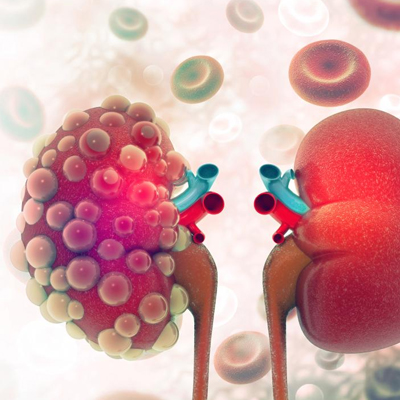Almost 18% of severely obese adolescents show signs of abnormal kidney function, according to new research presented at the National Kidney Foundation’s 2014 Spring Clinical Meetings.
The kidneys, located in the back of abdomen are organs in the body which function to remove water and waste products. They also produce important hormones such as erythropoietin, Vitamin D, and renin.
Kidney Function
Kidneys controls the concentration of body fluids in the body by excreting excessive amounts of water in the urine if body fluids are too dilute or by excreting excessive solutes when body fluids are too concentrated. Another important function is acid-base balance. The body maintains a constant pH via several buffering mechanisms. The kidney plays a major role in this by the net excretion of hydrogen ions when the blood is too acidic and the net excretion of bicarbonate ions when the blood is too alkaline.
They are also responsible for the conversion of Vitamin D to its active metabolite, which is important in the absorption of calcium from the intestine. Erythropoietin is manufactured by the kidney and stimulates the bone marrow to produce red blood cells. With renal failure there is decreased production of this hormone and anemia results. Produce renin, an enzyme that helps regulate blood pressure.
When the kidneys become damaged, waste products and fluid can build up in the body, causing swelling in your ankles, vomiting, weakness, poor sleep, and shortness of breath.
Test for Kidney Failure
The presence of too much albumin–a type of protein–in the urine, known medically as albuminuria or proteinuria, is an early sign of kidney damage. Researchers from Cincinnati Children’s Hospital Medical Center examined 242 severely obese adolescents for the study, and found that 17 percent of them had protein (albumin) in their urine — a condition called albuminuria, which is considered a sign of early kidney damage.
The Glomerular Filteration Rate (GFR) test is a measure of how well the kidneys are removing wastes and excess fluid from the blood. It may be calculated from the serum creatinine level using your age, weight, gender and body size. Normal GFR can vary according to age (as you get older it can decrease). The normal value for GFR is 90 or above. A GFR below 60 is a sign that the kidneys are not working properly. A GFR below 15 indicates that a treatment for kidney failure, such as dialysis or a kidney transplant, will be needed. In the same study, 3 percent of the teens had an abnormally low glomerular filtration rate (GFR) and 7 percent of teens had an abnormally high GFR. Researchers also found an association between higher body mass index and very low GFR.
Symptoms of Kidney Failure
- A metallic taste in the mouth or ammonia breath
- Protein aversion (no longer wanting to eat meat)
- Nausea and vomiting
- Loss of appetite
- Itchiness (pruritis)
- Swelling in the face, feet or hands
- Shortness of breath (from fluid in the lungs)
- Urine that is foamy or bubbly (may be seen when protein is in the urine)
- Weakness
- Mental confusion
- Feeling cold all the time
- Desire to chew ice, clay or laundry starch (called pica)
Early kidney problems don’t have many symptoms—but if you are experiencing any of the ones mentioned above, ask your doctor to determine if your signs are caused by kidney failure.
Tips to Manage a Healthy Kidney
- Reduce the intake of salt: Salt increases the amount of sodium in diet.
- Drink lots of water every day: Water keeps you hydrated and helps the kidneys to remove all the toxins from your body.
- Don’t resist the urge to urinate: Filtration of blood is a key function that your kidneys perform.
- Eat Healthy Food: If you eat more unhealthy, junk and fast food, then your organs have to face the consequences, including the kidneys. Foods that can strengthen your kidneys include fish, asparagus, cereals, garlic and parsley. Fruits like watermelon, oranges and lemons are also good for kidney health.
- Drink healthy beverages: Including fresh juices. Avoid drinking coffee and tea.
- Avoid alcohol and smoking: Excess intake of alcohol can disturb the electrolyte balance of the body and hormonal control that influences the kidney function.
- Exercise daily: Researchers believe that obesity is closely linked to kidney related problems.
- Don’t Overuse over-the-counter pain killers: Avoid excessive use of medications that can harm the kidneys, such as ibuprofen and naproxen.
- Watch your blood pressure: Blood pressure checks are important since high blood pressure can damage the kidneys.
- Maintain a healthy weight: Being overweight means that the kidneys have to work harder to filter out toxins and to meet the metabolic demands of the increased body mass.
- Know your kidney numbers: This goes for blood and urine. EGFR, or estimated glomerular filtration rate, is a measure of kidney function and is performed through a blood test. Be sure to get your urine tested as well for a protein called albumin. Too much albumin in the urine is an early sign of kidney damage.
References:
http://www.huffingtonpost.com/
https://www.kidney.org/
http://www.thehealthsite.com

